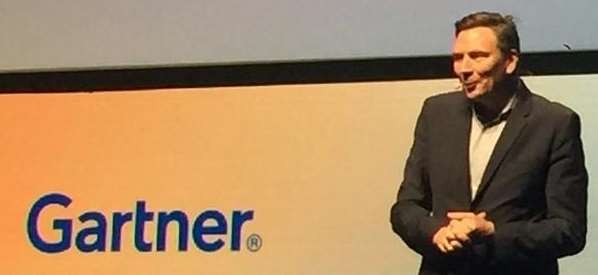Former Telstra CEO David Thodey has taken aim at Australian CIOs and senior executives telling them in no uncertain terms what they are doing wrong.
Speaking at the Gartner Symposium on the Gold Coast, Thodey didn’t hold back. “One of the greatest travesties of most organisations at the moment is that they've gone into a cost mentality not a growth mentality. And for the public service it's about how to deliver better social welfare. Our mindset has completely gone to the wrong place and we're getting ourselves caught in the wrong way of thinking,” he said.
“I think it’s a real issue for Australia and NZ in particular because we're small countries and we've got to think bigger and we've got to get our aspirations bigger as we go forward."
According to Mr Thodey, who was appointed CSIRO Chair last year, corporate cultures need to move from an ‘antiquated hierarchal power structure’ to an ideas and networks-based culture.
“That’s the only effective way I have seen large corporations break down the inevitable silo thinking.
“Great leaders inspire people to do more than what they thought was possible - that is the art of great management. It’s not about dictating what to do.”
Thodey says that CIOs have “failed to reinvent themselves” and become “too predictable”.
“Bring in startups to your organisation because they approach things differently. Seventy percent should be focused on future and 30 percent should be operational.”
Thodey feels that business leaders were feeling the victim of change rather than embracing and driving the new digital paradigm for their organisation. “Do you have a point of view that you can take to your board on how to change? Because I haven’t seen it.”
He urged CIOs to use digital technology to transform their organisations into a purpose and values driven one that inspires people to do things differently and as a catalyst for driving better customer service.
“Leading in a digital age is all about being open to everything and constantly learning.
“I think about what Singapore is doing in terms of their innovation agenda, and it's absolutely outstanding. Even the Philippines now is going through a lot of changes and have a plan for digital enablement.”
Thodey says that Australian CIOs need to adapt as the global economy transforms or risk being disrupted by new companies employing new digital technology to build new business models.
“The political, social and technological environment has never been as volatile as it is now. Never before have we seen a period in history where new companies have become so large so quickly. I’ve never seen a time of change and opportunity than we’ve got at the moment.”
Thodey says that the arrival of Artificial Intelligence (AI), robotics and Internet of Things (IoT) will mean that the labour market is going to change, predicting that almost 50 percent of IT jobs and middle management jobs will be lost to automation within the next ten to fifteen years.
“AI is going to be like electricity -- it is going to change so much in terms of the way we operate. Don’t think of AI as just another technology, it is going to enable us to do things in ways we never imagined before.
“I do a lot of work in the health sector now and just being able to do greater data analytics and more predictive statistical analysis is going to augment how health is delivered to each one of you.”
While Thodey paints a fairly gloomy picture on Australian digital leaders, he remains optimistic that businesses and the public sector can and will get it right.
“As we move from a mining base to one that has a strong services base, we need to think and operate in a digital and technical way first. Innovative companies such as Atlasssian and Seek are examples of that -- they are wonderful technology companies. If we can do that then there’s no reason why we can’t make a difference as we go forward.









